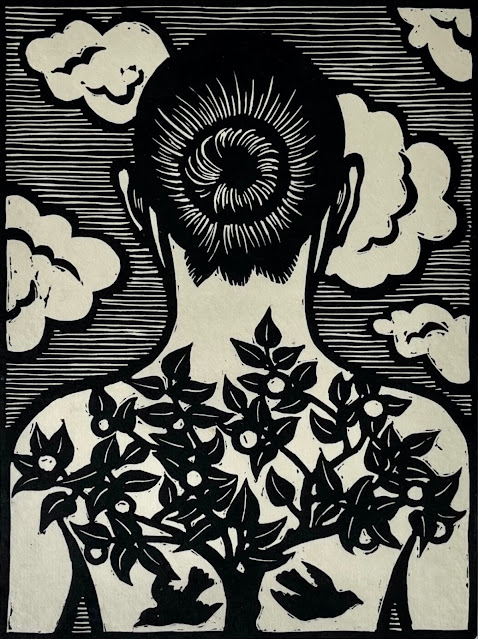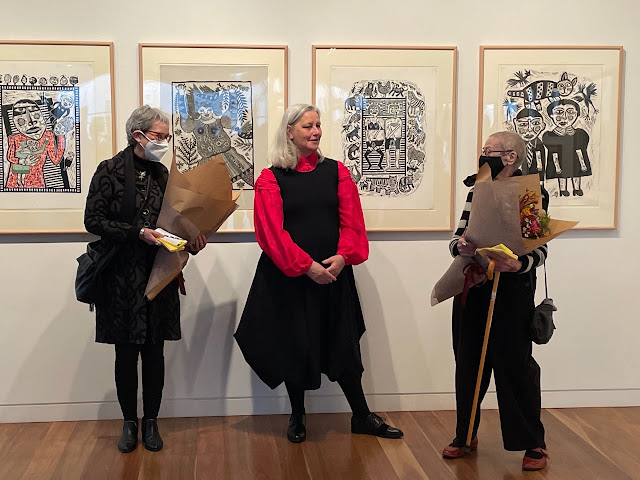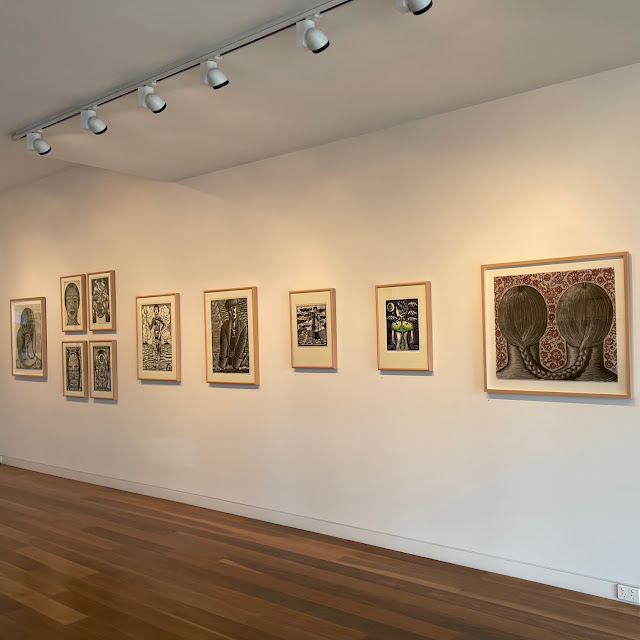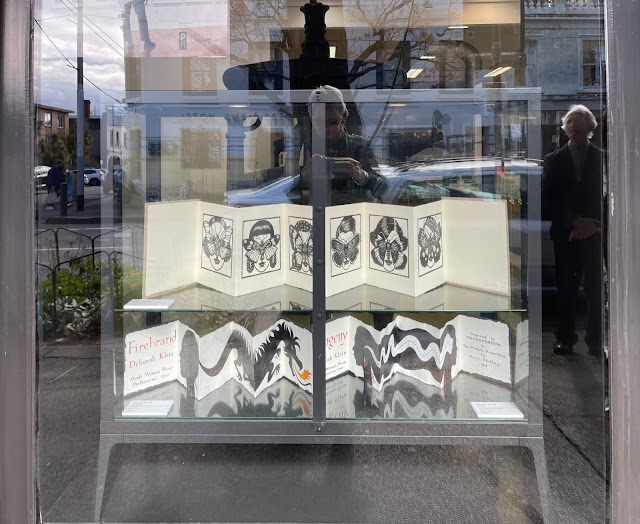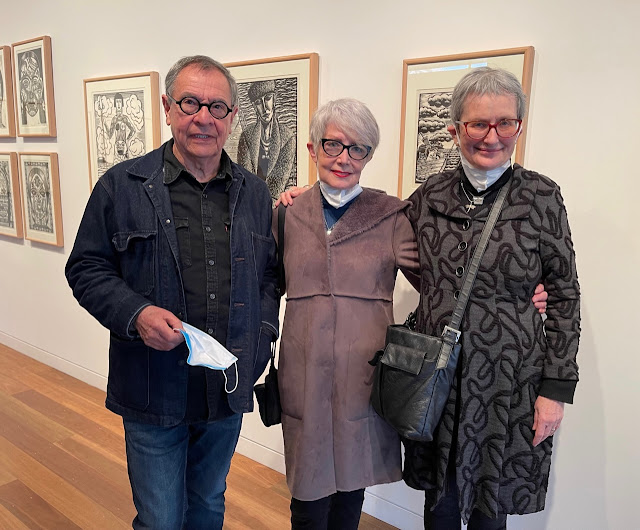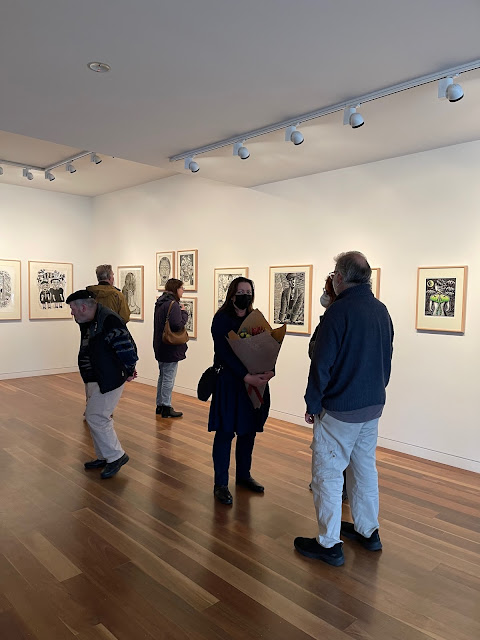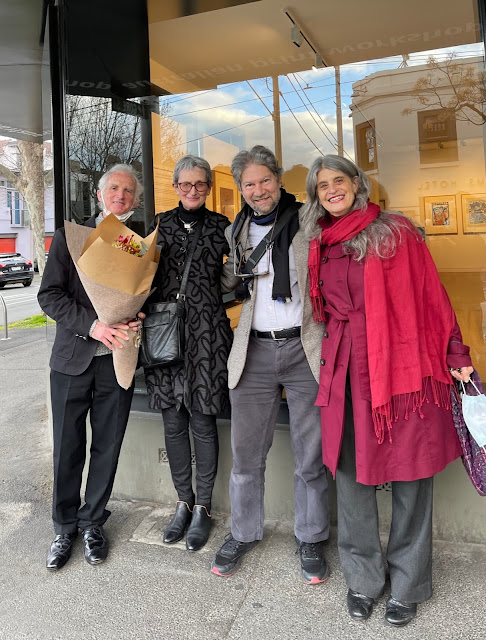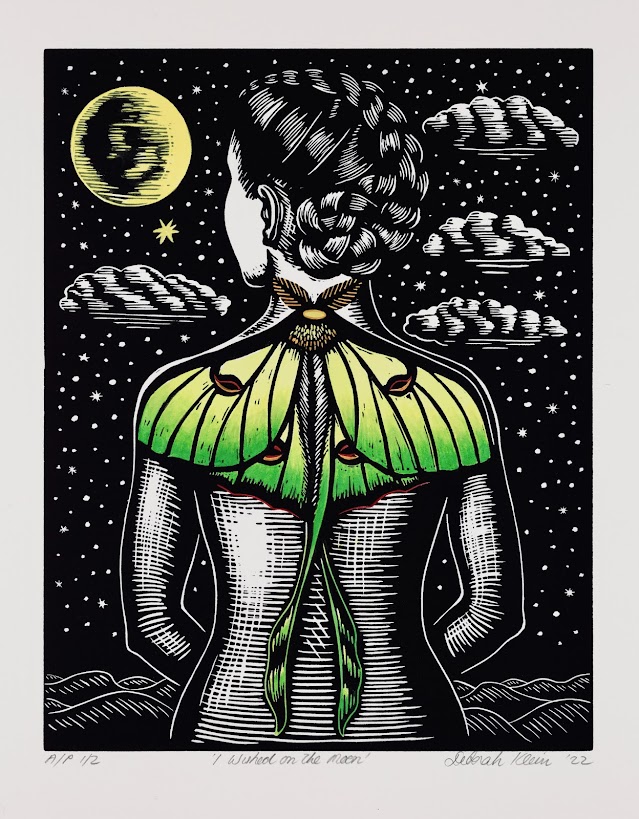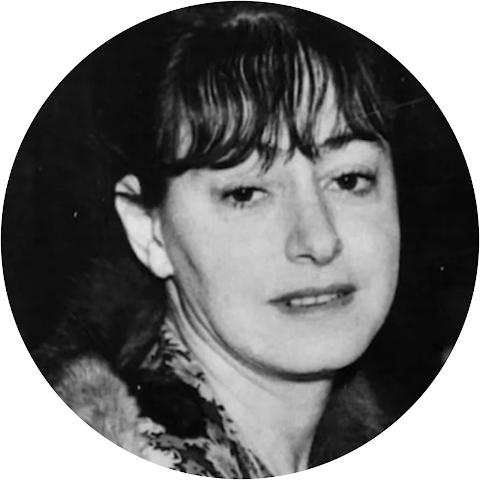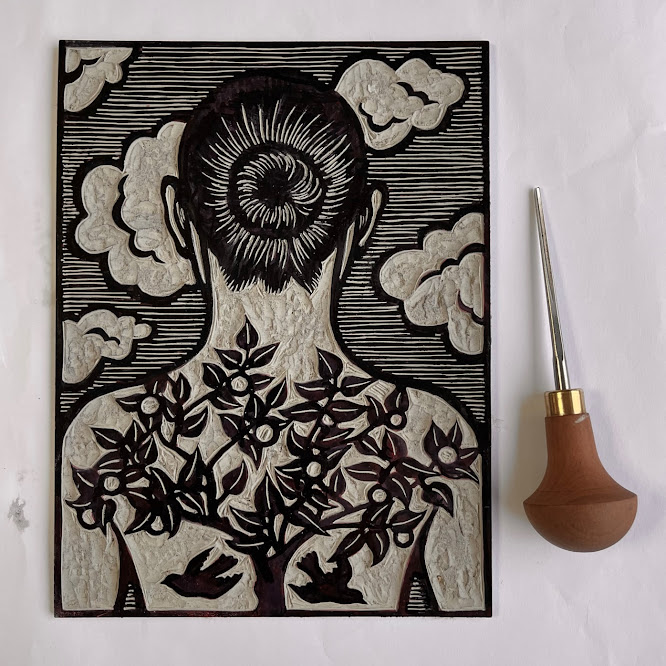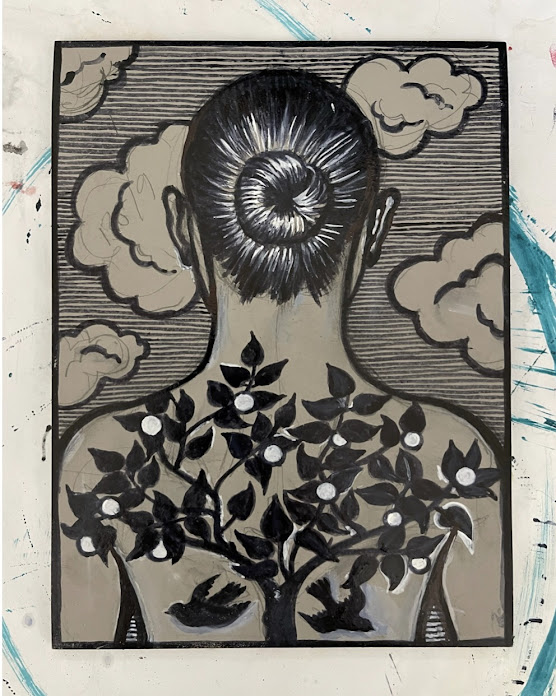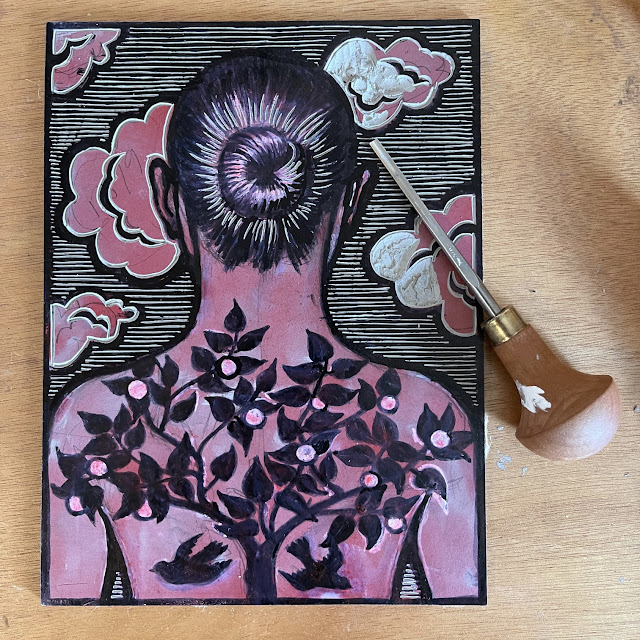Deborah Klein, I Wished on the Moon, 2022, hand-coloured linocut, 34.5 x 26.8 cm, ed. 20
Printed by Simon White at the Australian Print Workshop, Melbourne
Photo credit: Tim Gresham
After nigh on three-and-a half-decades as a practicing artist, the time is ripe to revisit and re-evaluate the past in order to clear a pathway for the creation of new narratives.
Accordingly, my current works gather together and re-contextualise the myriad of accumulated influences, motifs, themes and personal iconography that have directed it thus far. Among these are insects, particularly moths, and the meticulously braided hairstyles of my anonymous protagonists, the Rückenfiguren, or figures seen from behind.
From the outset, music has been a key influence. In this instance, the work begins and ends with the song from which it takes its title and much of its narrative content.
I first heard I Wished on the Moon several years ago on a reissue of Mel Tormé’s classic recording, Swinging on The Moon, a compilation of moon-themed jazz standards originally released in 1960.
It was one of the few songs on the CD I was unfamiliar with. Moved by the plaintive melody and bittersweet lyric, I was compelled to look into its authorship and history. The music was written in 1935 by Ralph Rainger, a prolific composer whose work I’ve long admired. But the real surprise was the identity of the lyricist. Dorothy Parker is best known as a writer of prose and poetry and is one of my favourite authors. Her writings have had a profound impact on many of my works. I was aware she was one of several people who contributed lyrics to the original production of Leonard Bernstein’s scathingly brilliant operetta, Candide (1956), but she is not generally known as a lyricist. I can find only one other lyric penned by her, and it’s also a standard. (1) I wish she had written more, and wonder why she didn’t.
I Wished on the Moon (detail)
The exquisite longing expressed in Dorothy Parker’s lyric set the stage for my work. The linocut doesn’t specifically seek to illustrate the song, but does take a number of cues from it. These lines prompted the inclusion of the evening star as part of my own narrative:
‘’I begged of a star
To throw me a beam or two;
Wished on a star
And asked for a dream or two…”
And its chorus encapsulates the entire work:
“I wished on the moon
For something I never knew;
Wished on the moon
For more than I ever knew;
A sweeter rose, a softer sky, an April day
That would not dance away.”
I Wished on the Moon has its own Wikipedia Page, which lists some notable recordings. These are my own favourites: Ruth Etting (1935) Billie Holiday (1951) and Mel Tormé (1960). Notably, all three artists have chosen to retain its verse. By comparison, Bing Crosby, who introduced the song in the film, The Big Broadcast of 1936, where he performed it in its entirety, omitted the verse and sang only one chorus in his 78 rpm soundtrack recording.
Fittingly, the great winged insect that literally has my protagonist’s back is a Luna moth.
The founder of modern taxonomy, Swedish zoologist, physician and botanist, Carl Linnaeus (1707 - 1778), included the species in the tenth edition of his Systema Naturae, (1758). He named it Phalaena luna, later Actias luna, with luna derived from Luna, the Roman moon goddess. Subsequently, its common name became "Luna moth".
In mythology, the Luna moth is chiefly associated with rebirth, transformation, transience, resilience and new beginnings.
Dorothy Parker (Photographer unknown)
Ralph Rainger’s haunting melody, so perfectly matched by Dorothy Parker’s heart-rending lyric, played in my head throughout the creation of this work. Because of the song’s apparently idiosyncratic nature, however, I was initially reluctant to attach its title to my own work. In fact, Dorothy Parker’s lyric for I wished on the Moon transcends the personal. After all, who among us hasn’t wished on the moon, or even longed to go there?
My linocut I Wished on the Moon is part of the 2020-2022 APW George Collie Memorial Exhibition at the Australian Print Workshop, opening today, Saturday, 6 August.
The exhibition is current to Saturday, October 1.
(1) How Am I to Know? (1929). Music by Jack King, lyrics by Dorothy Parker. You can hear Billie Holiday sing it HERE.
(2) This file is licensed under the Creative Commons Attribution 2.0 Generic license. The image was originally posted to Flickr by ravensong75 at https://flickr.com/photos/12938199@N00/2494163376 (archive). It was reviewed on 18 November 2017 by FlickreviewR 2 and was confirmed to be licensed under the terms of the cc-by-2.0


